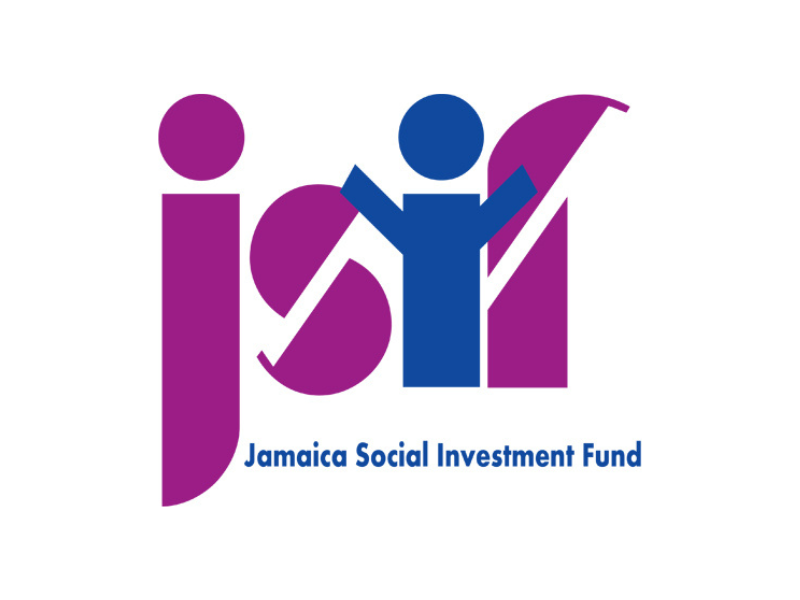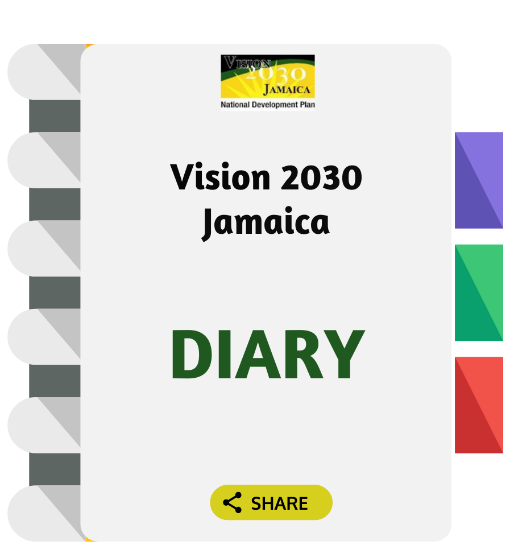Blog
JSIF and The Vision 2030 Jamaica – National Development Plan (September, 2022)

JSIF AND THE VISION 2030 JAMAICA – NATIONAL DEVELOPMENT PLAN
Jamaica Social Investment Fund (JSIF)
September 28, 2022
Keywords: Vision 2030 Jamaica; Development Approaches; participation; inclusion; sustainability; community development
Twenty-six years ago, the Jamaica Social Investment Fund (JSIF) was established as a key element of the national poverty alleviation programme. Its primary objective was to mobilize resources via the Government of Jamaica (GOJ) and international development partners and channel these to community-based socio-economic infrastructure and social services projects. Since then, while our targeted geographical communities remain those that have been significantly underserved over the decades along with vulnerable groups (persons with disabilities, children’s homes, etc.), the approach to project implementation has evolved in response to new thinking around development strategies and practice.
The JSIF Approach
The JSIF recognizes that poverty reduction is not simply economic, but requires a multi-faceted approach to address the myriad dimensions of poverty. We advocate holistic solutions by contributing to improvement of the social and economic infrastructure that facilitates wealth creation, citizen safety and security, and the empowerment of communities through personal and organizational development.
Our efforts have always been guided by some critical core principles, namely
- Improvements in public safety
- Building social capital
- Poverty focus
- Development focus
- Promoting partnerships for development
- Value for money
- Technical quality
- Environmental soundness
- Maximizing opportunities for employment and
- Transfer of learning
Effective participation of intended beneficiaries and other key stakeholders has always been paramount in our approach, as this ensures that interventions are fit for purpose and that there is buy-in by the users and the entities that will undertake maintenance and operations post-project. Methods to encourage this include mandated community contribution (in cash, kind or sweat equity) and the use of community-based contracting, whereby the community has direct involvement in and responsibility for project implementation.
The cross-cutting themes of gender, environment and vulnerability have strengthened project design and implementation by ensuring that interventions are centred around inclusion and sustainability. As an agency of the Government of Jamaica, JSIF’s programmes are aligned with the Vision 2030 Jamaica – National Development Plan, as well as the United Nations Sustainable Development Goals (SDGs). As such, we ensure that all projects contribute directly to national priorities and global development objectives.
Vision 2030 Jamaica
Through its project portfolios, the JSIF actively supports the achievement of eight of Vision 2030 Jamaica Outcomes, including the following National Priority Outcomes:
- Outcome 1: A Healthy and Stable Population
- Outcome 2: World Class Education and Training
- Outcome 3: Effective Social Protection
- Outcome 5: Security and Safety
- Outcome 14: Hazard Risk Reduction and Adaption to Climate Change.
Under Outcome 1, the Basic Needs Trust Fund (BNTF) Cycles 7-9 funded by the Caribbean Development Bank between 2013 – 2022 conducted water, sanitation and hygiene programmes to complement improvements to school sanitation facilities. The European Union-funded Poverty Reduction Programme (PRP) IV (2016-2021) rehabilitated much-needed health centres in rural and peri-urban areas, thus increasing access to quality health care. Since 2020, public sanitation infrastructure has been provided by the GoJ-funded Integrated Community Development Project 2 (ICDP2) in terms of construction and/or repair of sewer lines in ZOSO communities. During the COVID-19 pandemic, projects responded by providing personal protective equipment (PPEs) and sanitation supplies to schools, community agriculture and tourism enterprises and community-based organisations.
A nation’s future resides in its people. Recognising the nexus between development and an educated population, JSIF’s social interventions have been heavily geared towards human capacity development in support of Outcome 2. The ICDP2 has implemented market-driven skills training and apprenticeship programmes targeting at-risk youth (particularly young males), and actively supports development of Community Enterprises through entrepreneurship training, capacity building and provision of equipment to boost productivity. Access to quality education at the basic and primary levels has also been prioritized through school rehabilitation and expansion under the ICDP2 and BNTF9; an important corollary to this is strengthening of school leadership through professional development and provision of equipment and resource materials to enhance student engagement, especially for special needs students.
Effective Social Protection is essential to any poverty alleviation effort. In support of Outcome 3, the ICDP2 (2020-2023) facilitates the provision of civil documentation, notably birth certificates, through a partnership with the Registrar General’s Department. This intervention allows persons to obtain national identification, which facilitates access to school registration, the PATH programme, the National Health Fund and other essential services. Other social protection activities include parenting support programmes and infrastructure designed to facilitate access by all persons, including those with disabilities.
Outcome 5, Safety and Security, is supported through all projects that provide access to legitimate sources of income and personal/professional development. More specifically, the ICDP2 targets volatile and vulnerable communities to address some of the most urgent infrastructural and social needs that contribute to the breakdown of law and order. These include investments in human capital such as training in alternative livelihoods and entrepreneurship; business development grants to small enterprises; and conflict-prevention and mediation training. Infrastructural investments to promote citizen security include urban road rehabilitation (to facilitate access by emergency and other services); zinc fence substitution (thus improving line of sight and removal of hiding places); creation of urban green spaces to promote recreation and improved interactions between residents; and the provision of child-friendly infrastructure and education to promote safe routes to and from school incorporating road and personal safety (Safe Passages to School). These all incorporate Crime Prevention Through Environmental Design (CPTED) principles, i.e. a multi-disciplinary approach to deterring criminal behaviour through environmental design. The PRP IV provided technical support to the Jamaica Constabulary Force by rehabilitating, expanding, and constructing seven police stations in communities in Kingston, Clarendon, St James and St Catherine.
As a Small Island Developing State, Jamaica is vulnerable to the realities of climate change, characterized by unpredictable and increasingly severe weather events. The JSIF supports Outcome 14 “Hazard Risk Reduction and Adaptation to Climate Change” through the World Bank-funded Disaster Vulnerability Reduction Project (DVRP) (2016-2024) that seeks to boost Jamaica’s capacity to plan for, reduce and manage hazard risk and the effects of climate change. This involves enhancing urban drainage, coastal protection and transportation infrastructure as well as support to First Responders i.e. Jamaica Fire Brigade to improve resilience and response; editing of the National Building Code and associated stakeholder sensitization; improvement to seismic monitoring, measurement and reporting; and improving data collection, sharing and analysis for better planning and policy making. Additionally, through the World Bank-supported Second Rural Economic Development Initiative (REDI II), the community and tourism sectors, both critical to Jamaica’s economy, will benefit from climate resilient interventions. Being mindful that this Outcome is important to Jamaica’s sustainable development, the JSIF as a GOJ approved national entity, pursued and received accreditation from the Green Climate Fund, which increases Jamaica’s access to funding for climate resilient initiatives.
Vision 2030 Jamaica encourages a structured and targeted approach to the achievement of development objectives. The GOJ’s Ministries, Departments and Agencies must be responsive to the changing landscape, and adopt a joined-up approach rooted in partnership to maximise scarce resources and deepen impact, learning from experience & transferring knowledge to promote more inclusive, sustainable and climate/disaster resilient outcomes. The JSIF, through its projects, has championed this approach in strengthening our contribution to national development.
Up Next: Jamaica’s Tourism Sector is Resilient (September, 2022)



